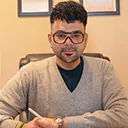All you need to know about Rosacea: Symptoms, causes, and treatment
Picture yourself, trailing up the steep hill upfront amidst a dazzling snowfall and your face gives away a shade of mild reddish tone. Looks blissful right? But that’s not the case if there’s no snow around you and your skin still looks red like you have been just out from the snow or a cold country.
This condition is called Rosacea, a common condition where a person experiences shades of redness around the cheeks, chin, forehead, and nose.
With advanced treatment and personal hygiene care, one can treat this common disorder. Read more to know what is Rosacea, its symptoms, its causes, and how you can treat them effectively.
What is Rosacea?
Rosacea is a chronic inflammatory skin condition that typically affects the nose and cheeks and results in flushed skin and a rash. It might also result in eye issues. People frequently claim that specific conditions, such as spending time in the sun or going through emotional stress, cause the symptoms to flare up and go away.
Rosacea can occasionally show up on the scalp, neck, chest, or ears. Untreated rosacea can result in red, hard lumps and pimples with pus. The condition may result in rhinophyma, a bulbous, bloated appearance of the nose. Rosacea can affect the eyes, causing them to feel scratchy and seem bloodshot or watery.
Rosacea cannot be cured, but treatment keeps it under control. Depending on the symptoms, a treatment plan will be chosen, which typically consists of both self-help techniques and medicine.
Symptoms
Most people only experience some of the rosacea symptoms, and each person’s symptom pattern is unique. Despite being chronic (long-lasting), rosacea frequently alternates between flare-ups and remission periods (lack of symptoms).
Rosacea symptoms include the following:
- Facial Redness: Beginning as a predisposition to flush or blush, this may eventually turn into redness that lasts for prolonged periods. The reddened skin may become rough and scaly, and there may be tingling or burning as well.
- Rash: Areas of facial redness might erupt into acne-like lumps and pimples that are red or pus-filled.
- Clear blood vessels: These typically appear as thin red lines on the cheeks and nose.
Causes
Rosacea’s specific cause is unknown to medical professionals. Several other factors includes:
The genetics. Oftentimes, rosacea runs in families.
Vascular problems Your face’s blood vessels may be the cause of the redness on your skin. They might become wider due to sun damage, which would make it simpler for others to see them.
Mites. They are little ants. Demodex folliculorum is a type that often dwells on your skin and isn’t dangerous. However, some people are more sensitive than usual to the mites or to larger numbers of these insects. Your skin could itch if there are too many mites.
Other ideas contend that the disorder is brought on by psychological causes, or an issue with the connective tissue beneath the skin.
Treatments
Rosacea cannot be cured, although it can be managed with medication. Understanding how to control your illness can take some time because rosacea affects each person differently. The best method to stop an outbreak is to create a treatment plan with your doctor and stay away from your triggers.
With laser skin treatment, larger blood vessels might become less apparent. Since the laser targets visible veining, it functions best on skin that isn’t tanned, dark, or black.
Discuss the advantages and disadvantages of laser therapy with your doctor. Swelling and bruising are unavoidable side effects of laser therapy for rosacea and may persist for many days.
During the healing process, icing and delicate skin care will be required. Laser treatment may result in a long-lasting or permanent darkening of the treated skin on brown or black skin.
It could take weeks before the full effects of the treatment become apparent. Repeat treatments can be required every so often to keep your skin looking better.
Takeaway
Though there’s no permanent solution to the issue, you can still keep it under the radar with proper treatment and self-care. If you are facing any skin-related issues and are on the lookout for the best dermatologist near you, book an appointment at Agelock to experience flawless skin.





